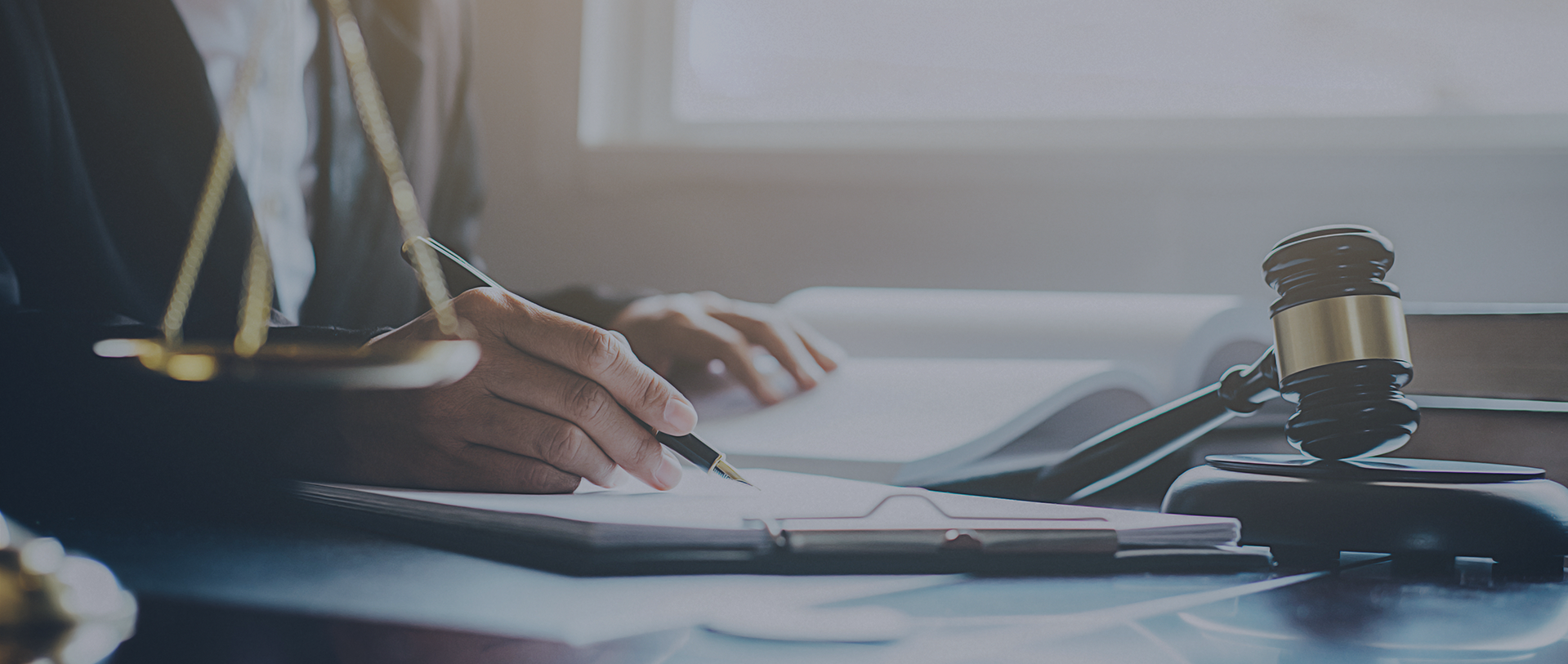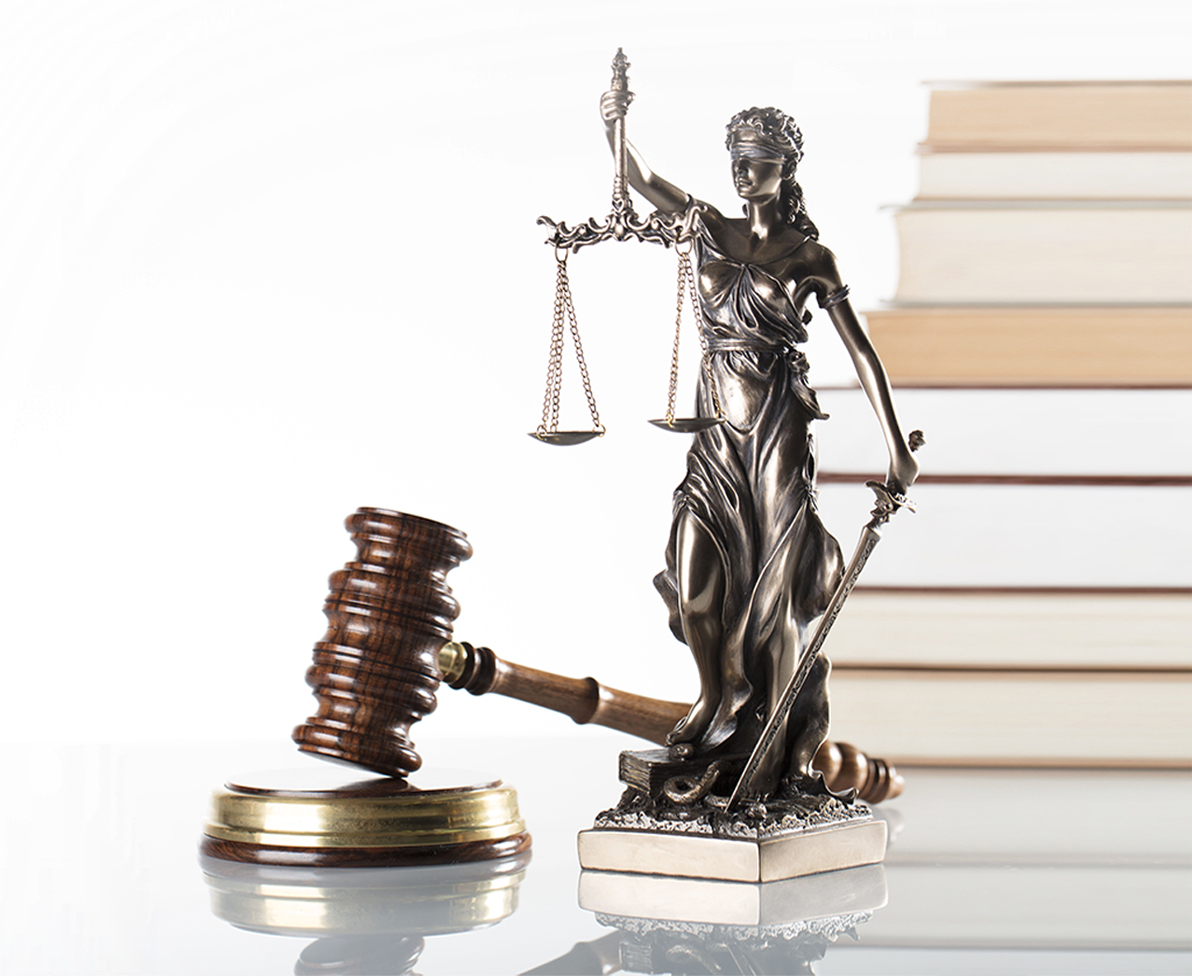
Felony charges in California are extremely serious, can have life changing consequences. California is a capital punishment state, which can make having a felony charge an even more complicated situation at times. There are various crimes in California called “wobblers,” which means that they can either be charged as a felony or a misdemeanor. However, most wobblers will likely end up being charged as felonies. With felony convictions, California’s “Three Strikes” rule can come into play, which puts someone being charged at the forefront of further punishment.


What is a Felony Charge in California?
In Layman’s terms, a felony is “a crime which can be punishable by death or imprisonment for sixteen months or more in the state prison.” More specifically, a crime in California is considered a felony when one can be sentenced to state prison for more than one year, or is sentenced to the death penalty. Many criminal offenses can be charged as a misdemeanor rather than a felony – the difference is that the maximum exposure for a misdemeanor is one year in the county jail.
Not all felony cases result in a state prison sentence. With the help of an experienced attorney, lesser punishments can be obtained even on serious felony charges.
Wobblers
A crime that can be charged as either a felony or a misdemeanor is called a “wobbler.” Sometimes, the office of the District Attorney can change crimes that were charged as a misdemeanor to a felony upon further investigation into the case. Similarly, they can change felony charges to misdemeanors in some cases. There are many criminal offenses that qualify as wobblers. A few of them are among the following:
- Sexual battery
- Fraud
- Domestic violence
- Forgery
- Grand theft
- Vehicular manslaughter
- Stalking
- Burglary
- Assault with a deadly weapon
- Criminal threats
One who is charged with a felony that qualifies as a wobbler should obtain the assistance of an experienced attorney because in certain cases, the attorney may be able to negotiate the felony down to a misdemeanor charge. When this happens the exposure to punishment is lessened as well as the stigma of having a lifelong felony on your record.
Different Types of California Felonies
There are various types of crimes that can be charged as a felony in California. Some felonies are more serious than others, however, they all have serious and lasting consequences. Just to name a few, you may be ordered to pay fines and fees, you may be placed on formal probation – where you have to report to a probation officer every month – you may be incarcerated, and in many cases, you may end up with a lifelong criminal record.
Violent Felony Charges in California
Violent crimes are often charged as felonies. These include, but are not limited to, the following:
- Battery that causes serious injury
- Stealing a vehicle (carjacking)
- Assault using a deadly weapon
- Arson
- Rape
- Murder/voluntary manslaughter/attempted murder
- Assaulting a public official
- Statutory rape
- Robbery
- Kidnapping
- Threatening witnesses or victims
- Mayhem
Felony DUI Charges in California
In the case of someone driving under the influence of either alcohol or drugs (DUIs), it is considered a felony if someone has received three DUI convictions in the past, or if he or she has previously received a felony DUI conviction. However, if someone is injured or killed due to a DUI accident, it will always be charged as a felony.
Felony Drug Charges in California
Most crimes that involve drugs in California will be charged as felonies rather than misdemeanors if they include facts other than simply possessing a drug. Some of the various drug crimes involving controlled substances include:
- The manufacturing of controlled substances
- The sale of controlled substances
- Transporting controlled substances
- Possessing controlled substances with the intent to sell them
The felony charges listed above can involve many types of drugs, which include but are not limited to marijuana, heroin, methamphetamines, DMT, cocaine, ecstasy, Xanax and prescription drugs.
Felony Property Charges in California
There are many property crimes that can be charged as felonies in California. Many people do not take property crimes as seriously as other felonies, however, property crimes can have very serious consequences. Punishment for property crimes can include formal probation, incarceration, and even the loss of one’s driver’s license. Some of the most common felony property crimes are:
- Property damage from vandalism that costs more than $400
- Auto theft
- Grand theft
- Identity theft
- First-degree burglary
- Theft of funds from a workplace (embezzlement)
- Fraud
- Accepting stolen property
The Felony Process
Pre-Arrest
First and foremost, when someone is suspected of committing a felony, a pre-arrest investigation is likely to take place. During this time, the suspect has not yet been arrested, and charges may not have been filed yet. This is the time when you should reach out to an experienced criminal defense attorney. With proper legal help, an attorney can:
- Assist with surrender (which in some cases can prevent an arrest from occurring),
- Potentially stop charges from being filed or minimize the charges filed, and
- If appropriate, redirect any accusations into an informal resolution.
The pre-arrest phase is also when a search warrant can be issued, but that doesn’t always occur. When it does, whoever is suspected of a felony can be subject to having their workplace, house, and even property inspected.
The Arrest
Sometimes a suspect is arrested at the scene of a crime. However, there are instances when law enforcement must gather enough evidence to establish probable cause to make an arrest. In these instances, once law enforcement feels they have gathered enough evidence to support an arrest warrant, a judge must grant and sign the warrant.
Upon arrest, the suspect can either be immediately charged or not. However, he or she will be fingerprinted, searched and questioned. One may be subject to more investigations upon arrest, but before charges are pressed. The District Attorney’s office is ultimately the entity that will bring formal charges against the accused. On most felony charges, with the exception of some, the District Attorney has up to three years to file charges against the suspect.
It is not advisable to speak with law enforcement without the guidance of an experienced criminal defense attorney. What you say can and will be used against you, whether you’ve been arrested or not. If you are facing criminal charges, contact the Paladin Legal Defenders to help guide you through this critical time.
The Initial Appearance (Arraignment)
Within two business days post-arrest, if the now “Defendant” is in custody, the Defendant will be brought in for an arraignment, where he or she will be told what charges have been brought. If the Defendant posted bail and is out of jail, the arraignment may be set at a later date. If a bail has not been set, or the Defendant wishes to ask for a lower bail, a bail hearing can be conducted to set or lower the bail on the case. Here, an experienced attorney can assist in saving the Defendant money by requesting a lower bail amount. Setting or lowering the bail amount is situational. It is dependent on what the charges are, how serious the case is and if the accused is a threat to the public. The purpose of setting bail is to make sure the Defendant attends all court dates.
At the arraignment, the Defendant is also required to enter a plea of guilty or not guilty. Generally, in felony cases, a plea of not guilty is entered so that the Defendant (and his or her attorney) have the time to go over the evidence in the case in order to properly discuss a resolution with the District Attorney’s office and/or the Judge.
Pre-Trial Conference
When a plea of not guilty is entered, the court will schedule a pre-trial conference, generally within a few weeks from the arraignment date. At the pre-trial conference, the Defendant’s attorney will start discussions with the DA’s office to resolve the case. At the pre-trial conference, the attorneys will discuss the evidence in the case, whether any motions will be filed, and what types on plea bargains are appropriate. If the parties reach an agreement, the case may be resolved.
Preliminary Hearing
If a resolution is not reached in the pre-trial stage, the case is set for a preliminary hearing. During this hearing, the DA is required to show there is enough evidence against the Defendant to move forward with the charges against him or her. The hearing is held in front of a judge, and generally, the DA will call some of their witnesses to testify. Usually, law enforcement officers involved in the arrest will testify at this hearing. The defense is allowed to cross-examine the witnesses.
Trial for a Felony Charge
There are two types of trials in California: a bench trial or a jury trial. In a bench trial, there is no jury, a judge will hear the evidence and determine if the defendant is guilty beyond a reasonable doubt. In jury trials, a jury of twelve people will be selected to hear the evidence and determine whether the defendant is guilty beyond a reasonable doubt.
In a jury trial there is a jury selection process where both parties have the opportunity to question potential jurors to make sure that they will be fair and impartial.
Once, the trial starts, both parties give an opening statement. Then the parties will begin to call their witnesses. Each witness is examined (questioned) by the party in which he/she was called, and then the opposing party will have the opportunity to cross-examine that witness. A defendant in a criminal case is protected by the 5th Amendment of the United States Constitution from being required to testify at trial, but he/she can testify if he/she chooses. After all of the evidence has been presented, each attorney makes closing arguments.
If the trial is a jury trial, the Judge will give instructions to the jury and they must reach a unanimous decision.
Verdict for a Felony Charge
Sentencing comes after someone is found guilty of the charge(s) against them. The judge creates a punishment at an official hearing for the charge(s). The accused’s lawyer will typically fight for the shortest prison sentence. In some extreme cases, the attorney has to argue for their client to have life in prison to avoid them receiving the death penalty. The court will usually order a report from a probation department that assists in the final verdict.
In the long run, the judge’s ultimate decision is final. If one is convicted of a felony, he or she has 60 days to file an appeal. However, if a death sentence has been ordered for the accused, an appeal is automatically created.
Avoiding a Felony Conviction
One of the best ways to avoid receiving a felony conviction is to make sure that you are partnered with an accomplished, passionate and experienced felony attorney in California. Upon being arrested, the defendant must aim to avoid a felony conviction since it remains on one’s record for life. A second conviction will result in an increased punishment.
There are three possible routes one can take in order to avoid a felony conviction. All three options must be taken seriously and implemented to a full extent:
- Dismissal: Questions that must be asked include, but are not limited to, the following:
- Is the charge true and legitimate?
- Are there any witnesses that can be brought in who are credible?
- Are there solid and vital witnesses available who are willing to show up and testify in court?
- Was the evidence for the felony case legally acquired? Was the confession voluntary and legal?
- Plea bargain:This is the agreement between a defendant and a prosecutor where the defendant agrees to plead guilty – or “no contest” – in exchange for the prosecutor to reduce the charge to a less serious one or to drop charges completely.
- Not guilty verdict: After the evidence and witnesses are thoroughly assessed, the plea offer’s legitimacy must be taken into consideration as well.
Seeking Experienced Legal Counsel
Due to the strict nature of California’s felony laws and punishments that come with it, we strongly recommend anyone experiencing a felony charge to seek out the best legal help. When you put your trust in Paladin’s experienced criminal defense and felony arrest attorneys in California, you have 22 years of experience ready to take on any case you throw our way.
Here at Paladin Legal Defenders, we charge clients a flat fee for the criminal cases that we handle. There are no surprise costs or charges after you retain us. What we quote is what you pay for our legal services. Our free consultation makes getting the information that you need a no-risk proposition. Give Paladin a call at 714-536-9988, it could change your life.
Consequences of a Felony Conviction in California
Apart from the most direct and devastating repercussions, including lengthy prison sentences and hefty fines, a felony conviction in California can also have several other long-term consequences, which can make it tougher for you to lead a normal life. Here are a few things to consider if you are facing felony charges.
Loss of Firearm Rights
If you are convicted of felony charges in California, you will permanently lose your Second Amendment right to possess firearms. It should be noted that the ban on firearm possession is not only applicable to adults, but also to minors who are tried as adults.
The only way to restore your right to possess firearms after a felony conviction is to receive a pardon from the Governor. Needless to say, it might not be possible for everyone. Moreover, if you are convicted of felony charges involving the use of a dangerous weapon, you will not be able to restore your firearm rights – even if you are pardoned by the Governor.
Difficulties in Finding Housing
A felony conviction can make it difficult for you to rent a place to live once it’s behind you. California law allows landlords to run background checks on prospective tenants. Correlating with this, you cannot hide your conviction from a landlord. The law also allows landlords to deny housing to convicted felons – as long as they are not in violation of any state or federal law.
Impact on Employment
Depending on what you are convicted for, a felony conviction can disqualify you from employment of various jobs. For instance, if you are convicted of sex-related felony charges – especially one involving minors – you might not be able to qualify for any job that requires you to work with women or children. You might also be prohibited from working at any place which is frequented by children.
If you are convicted of felony DUI, you may not be able to qualify for any job that requires you to operate a motor vehicle. If you are convicted of drug-related felony charges, you may not qualify for any job that involves access to narcotics. A felony conviction – regardless of the offense – can permanently disqualify you from serving in the US military as well – unless you get a waiver.
Impact on Professional Licenses
Depending on the nature and severity of the offense you are convicted for, your professional or occupational license may be suspended or revoked by the licensing authority.
Similarly, the law requires you to disclose prior convictions while applying for a professional license. Depending on your criminal record, you may not be able to get a license at all.
Loss of Parental Rights
One of the most serious consequences of a felony conviction in California is that you may not be able to get custody of your children. Furthermore, if you are convicted of felony charges involving children, you may be denied visitation as well – your partner might argue that you cannot be trusted with your own children.
Difficulties in Traveling to Other Countries
Many countries have a policy of denying entry to convicted felons. This means with a felony conviction on your record, you might not be able to visit certain countries.
Apart from this, the very fact that you are a convicted felon can affect your social life to a far greater extent than you might imagine. It is a stigma that many people find difficult to break through. If you are charged with a felony, get in touch with the experienced California criminal defense attorneys at Paladin Legal Defenders as soon as you can and take steps to protect your rights, your freedom, and your future. We will do everything in our power to help you reach the best possible outcome.
Information
is power.
GET A FREE CONSULTATION
If you are in trouble and need to speak with an Attorney in our firm, please contact our office immediately.
CALL NOW FOR A FREE, NO OBLIGATION EVALUATION OF YOUR CASE
Make us your Paladin
(714) 536-9988
Before you can make any decisions regarding your case, you need to know what all of your options are. Information is power. Let us help you get informed about what to expect in your case and how the criminal law system works. The consultation is free, whether you hire us or not.


